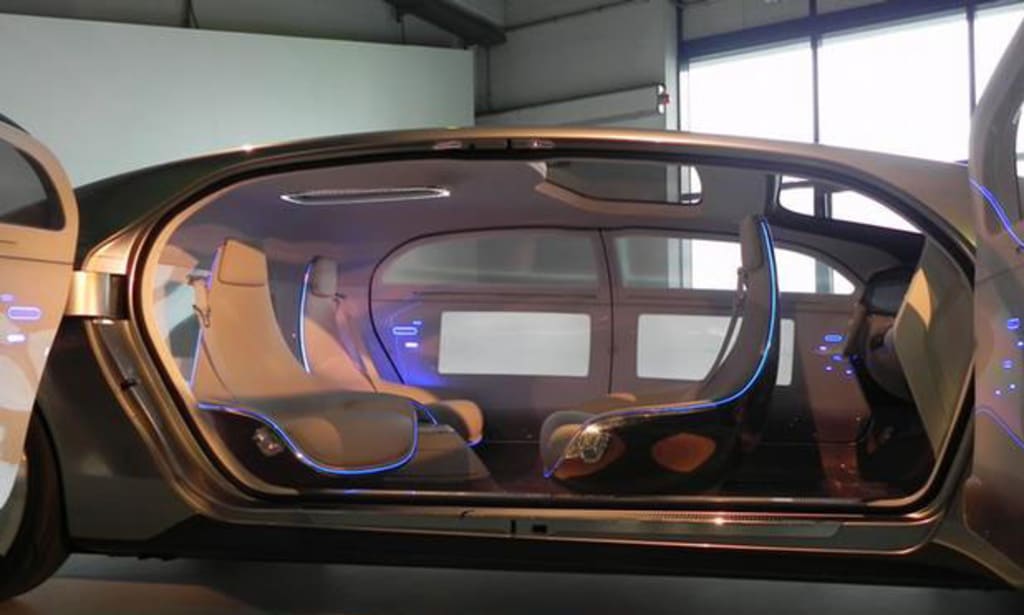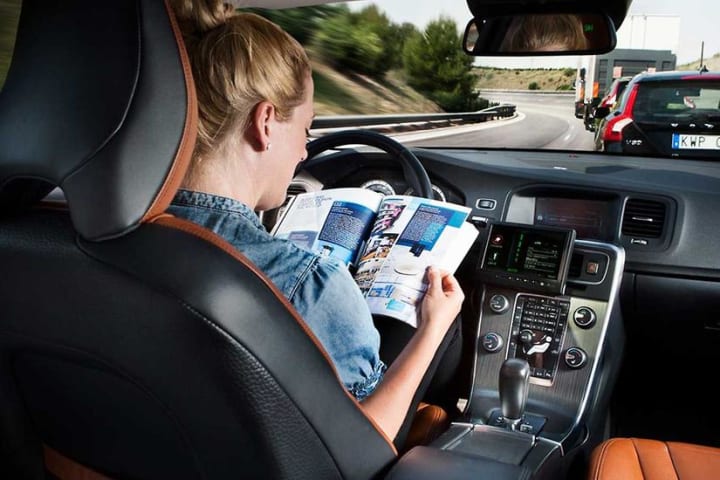"Revolutionizing the Road: How Self-Driving Cars Will Change the Way We Drive"
Everything you need to know about Self-Driving Cars

Self-driving cars, also known as autonomous vehicles, are poised to revolutionize the way we drive. These vehicles use sensors, cameras, and other technology to navigate the roads without human intervention. The potential benefits of self-driving cars are numerous, including:
1. Improved safety: Self-driving cars have the potential to significantly reduce the number of accidents on the road. They are not subject to human error, such as distracted driving, and can react more quickly to changing driving conditions.
2. Increased mobility: Self-driving cars have the potential to increase mobility for people who are unable to drive, such as the elderly or people with disabilities. They could also reduce the need for personal car ownership, as people could use self-driving cars as a service.
3. Reduced traffic: Self-driving cars have the potential to reduce traffic congestion by optimizing routes and reducing the number of cars on the road.
4. Improved energy efficiency: Self-driving cars could be programmed to drive more efficiently, which could reduce fuel consumption and greenhouse gas emissions.
5. Improved productivity: Self-driving cars could allow people to work, read, or relax during their commute, which could increase productivity and reduce stress.
Despite the potential benefits, there are also some challenges to be addressed before self-driving cars can become widespread. These include regulatory issues, technical challenges, and public acceptance. However, many car manufacturers and technology companies are investing heavily in self-driving car technology, and it is likely that we will see more and more self-driving cars on the road in the coming years.
What are some of the technical challenges that need to be addressed?
There are several technical challenges that need to be addressed before self-driving cars can become widespread. Some of these challenges include:
1. Sensor technology: Self-driving cars rely on sensors, such as cameras, lidar, and radar, to detect objects and navigate the roads. These sensors need to be able to accurately detect and identify objects in a variety of driving conditions, including rain, snow, and fog.
2. Artificial intelligence and machine learning: Self-driving cars use artificial intelligence and machine learning algorithms to interpret sensor data and make decisions about how to navigate the roads. These algorithms need to be able to learn and adapt to new situations, such as unexpected road conditions or construction zones.
3. Cybersecurity: Self-driving cars are vulnerable to cyberattacks, which could compromise their safety and security. It is important to develop robust cybersecurity measures to protect self-driving cars from hacking and other cyber threats.
4. Communication infrastructure: Self-driving cars need to be able to communicate with other vehicles and with the surrounding infrastructure, such as traffic lights and road signs. A robust communication infrastructure is needed to ensure that self-driving cars can operate safely and efficiently.
5. Liability and legal issues: There are many liability and legal issues that need to be addressed before self-driving cars can become widespread. For example, who is responsible if a self-driving car is involved in an accident? How can we ensure that self-driving cars are programmed to make ethical decisions?
Overall, addressing these technical challenges will be critical to the widespread adoption of self-driving cars. Many car manufacturers and technology companies are working on solutions to these challenges, but there is still much work to be done.

How can we ensure that self-driving cars are programmed to make ethical decisions?
Ensuring that self-driving cars are programmed to make ethical decisions is a complex issue that requires input from a variety of stakeholders, including car manufacturers, technology companies, policymakers, and the public. Here are some of the ways in which ethical decision-making can be incorporated into self-driving car programming:
1. Develop clear ethical guidelines: Car manufacturers and technology companies can work with ethicists and experts in the field to develop clear ethical guidelines for self-driving cars. These guidelines can help ensure that self-driving cars are programmed to make decisions that are in line with societal values.
2. Incorporate public input: It is important to solicit input from the public on what values and priorities should be incorporated into self-driving car programming. This can be done through public surveys, town hall meetings, and other forms of public engagement.
3. Use machine learning algorithms: Machine learning algorithms can be used to help self-driving cars learn from past experiences and make decisions based on ethical principles. For example, self-driving cars can be programmed to prioritize the safety of pedestrians over the safety of passengers.
4. Develop a transparent decision-making process: It is important to develop a transparent decision-making process for self-driving cars, so that users understand how decisions are being made. This can help build trust in the technology and ensure that self-driving cars are making decisions that align with societal values.
5. Build in fail-safe mechanisms: Self-driving cars should be built with fail-safe mechanisms that can override the programming in the event of an ethical dilemma. For example, if a self-driving car is faced with the choice of hitting a pedestrian or swerving into oncoming traffic, it should be programmed to prioritize the safety of all individuals involved.
Ensuring that self-driving cars are programmed to make ethical decisions will require a collaborative effort from a variety of stakeholders. By incorporating ethical principles into self-driving car programming, we can help ensure that these vehicles are safe, efficient, and aligned with societal values.
About the Creator
Car Community
high quality car stories , everything you should know about every car ever made.






Comments
There are no comments for this story
Be the first to respond and start the conversation.